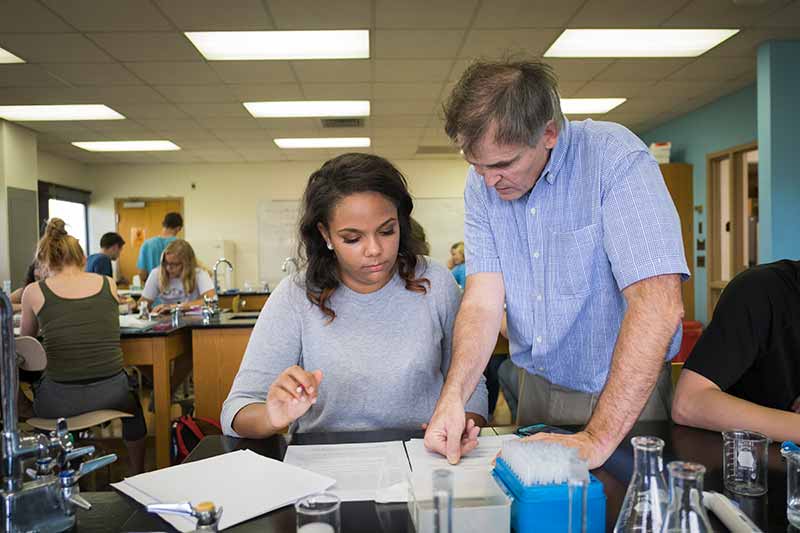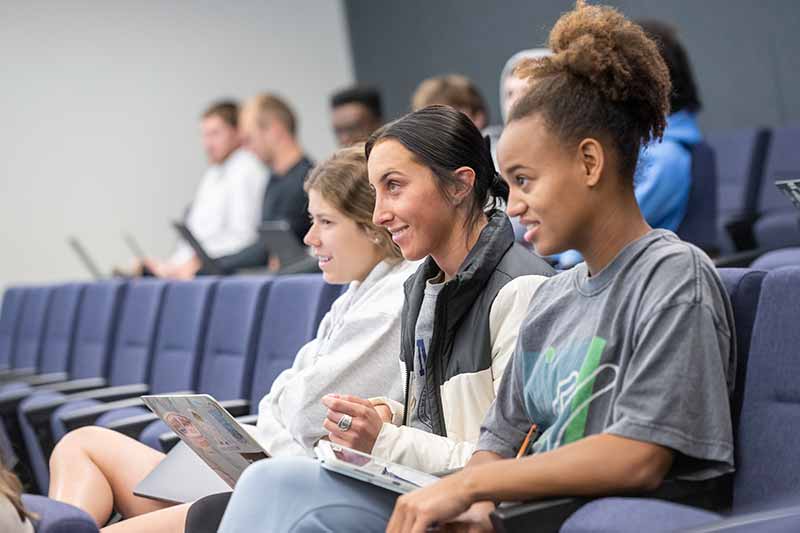Department of Biology
About the Department
The mission of the Biology Department takes its direction from the broader mission of Westminster College. Our quest for academic excellence and extensive experiential learning is suffused with a recognition that stewardship of life mandates the maximum possible development of each person's intellectual capabilities and social responsibilities. In order to help students develop the competencies, commitments, and characteristics that distinguish human beings at their best, the biology department realizes its mission in students who:
- acquire knowledge and an appreciation of the natural world;
- cultivate an intellectual curiosity that encourages observation and exploration using multiple perspectives;
- demonstrate competencies to reason logically, evaluate critically, communicate effectively, and imagine creatively;
- develop and demonstrate moral and ethical commitments to society and the natural world;
- commit themselves to lifelong learning and the acquisition of skills for careers and responsible service as world citizens.

Experiences & Opportunities
At Westminster, learning isn’t limited to the classroom. In each of our 50+ majors and pre-professional programs, your education will be enhanced by the purposeful combination of expert classroom instruction and hands-on learning opportunities. Internships, undergraduate research and studying abroad are just a few of the real experiences our students get that lead to real success after graduation.
Faculty & Academic Staff
Teachers, researchers, experts, mentors...our faculty members are all these things and more to their students. They trained in universities around the globe, but they chose to teach and conduct research at Westminster because of the focus on student development and success. Their dedication to mentoring and teaching is evident in our students’ success when it comes to graduation rates, post-graduation employment and graduate and professional school acceptance.

School of Life & Health Sciences News, Stories & Spotlights
View More School of Life & Health Sciences News, Stories & Spotlights










